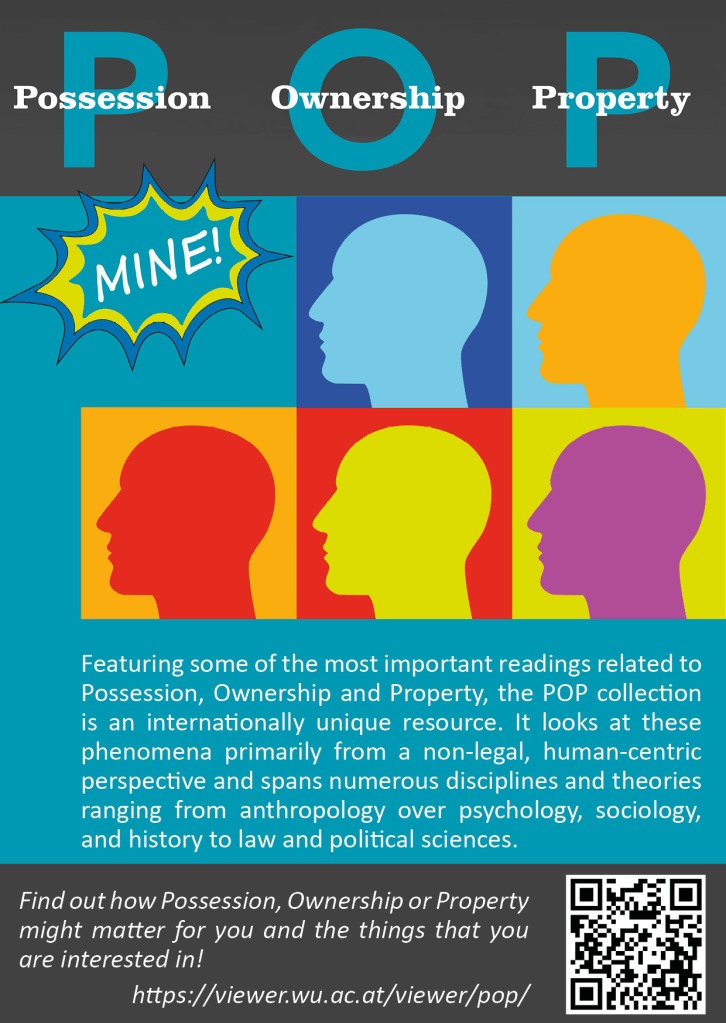We are writing the year 2017, an era with a higher population of mobile gadgets than people (GSMA Intelligence 2017), where we easily create a 10 million Blu-ray discs amount of data each day (Walker 2015). A substantial fraction of these data represents virtual copies of our very selves. From digitally tracking our personal health over religiously using our loyalty cards for better deals to simply surfing the Internet for information – where we go, what we do and consume, how we behave and feel is not a private matter anymore (Haddadi & Brown 2014). Despite heightened public concern about how personal data is collected and used (Pew Research Center 2014), we rarely think about oversharing when we download apps, sign up for mailing lists, or give away our personal details in exchange for a boost in convenience and temporary well-being. What is more, the question of who holds legitimate claim over these data – legally as well as psychologically – is still fuelling an undisputed yet to date unsatisfactory debate.
In a new book chapter to appear in a book on ownership that Joann Peck and Suzanne Shu are editing for Springer, Bernadette Kamleitner from WU Vienna and Vince Mitchell who is just about to move from London to The University of Sydney are exploring these and related questions in detail and come to surprising conclusions about the logic of ownership in the context of personal data. Read for yourself what they discovered in the abstract below. The matching first-draft of the chapter in its entirety can be downloaded [HERE]:
In the age of information everything becomes mined for the nuggets giving rise to it: data. Yet, who these new treasures do and should belong to is still being hotly debated. With individuals often acting as the source of the ore and businesses acting as the miners, both appear to hold a claim. This chapter contributes to this debate by analyzing whether and when personal data may evoke a sense of ownership in those they are about. Juxtaposing insights on the experience and functions of ownership with the essence of data and practices in data markets, we conclude that a very large fraction of personal data defies the logic and mechanisms of psychological possessions. In the canon of reasons for this defeat, issues of data characteristics, obscuring market practices, and data’s mere scope are center stage. In response, we propose to condense the boundless collection of data points into the singularized and graspable metaphor of a digital blueprint of the self. This metaphor is suggested to grasp the notion of personal data. To also enable consumers to effectively manage their data, we advocate adopting a practice commonly used with plentiful assets: the establishment of personal data agents and managers.
References
GSMA Intelligence. (2017), available at https://www.gsmaintelligence.com/
Haddadi & Brown (2014), Quantified Self and the Privacy Challenge, Technology Law Futures.
Kamleitner & Mitchell (2017). Can consumers experience ownership for all their personal data? From issues of scope and invisibility agents handling our digital footpring. In press
Pew Research Center (2014). Public Perceptions of Privacy and Security in the Post-Snowden Era. November 12. http://www.pewresearch.org.
Walker (2015). Every Day Big Data Statistics – 2.5 Quintillion Bytes of Data Created Daily. Available at http://www.vcloudnews.com/every-day-big-data-statistics-2-5-quintillion-bytes-of-data-created-daily/

